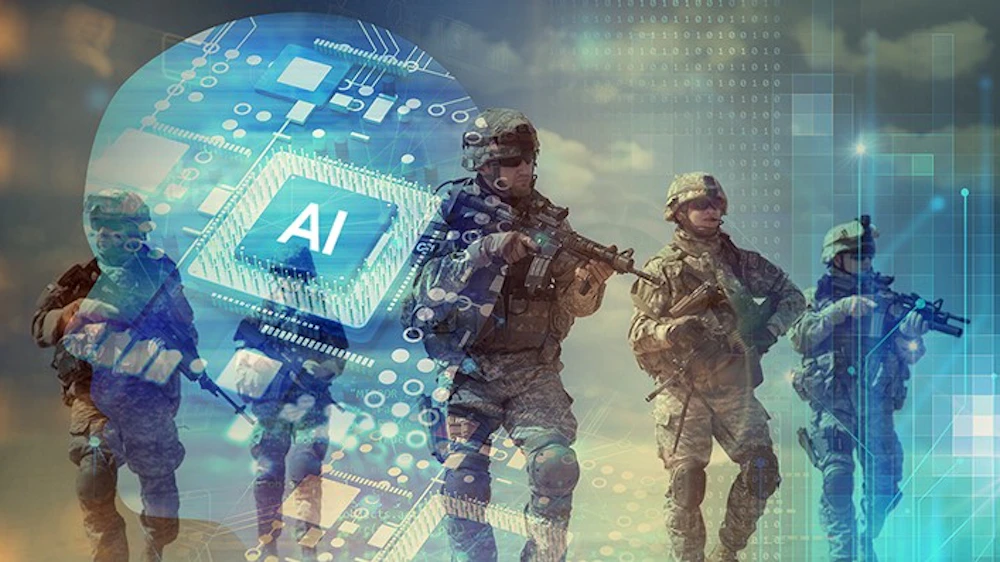AI has been a topic of discussion in the defence sector for quite some time. It has the potential to revolutionise the way we approach warfare, from training and surveillance to logistics, cybersecurity, UAVs, advanced military weaponry like Lethal Autonomous Weapon Systems (LAWS), autonomous combat vehicles and robots. AI-powered military devices can handle vast amounts of data, making it easier for the armed forces to make informed decisions. However, the use of AI in the military also poses a significant risk, as it can be used to develop autonomous weapons that can operate without human intervention. The use of such weapons can lead to unintended consequences and pose a threat to human life. The use of AI in the military is a double-edged sword. It is essential to ensure that it is used responsibly. The development of AI-based weapons should be regulated to ensure that human life is not put at risk. In the field of cybersecurity, too, AI is a mixed blessing. While AI can help detect and prevent cyber attacks, it can also be used by attackers to evade detection and launch more sophisticated attacks. As with military systems, AI-based cybersecurity solutions must protect users and prevent cyber attacks, especially on sensor-shooter links and weapons platforms.
The use of AI in the military can provide multiple benefits:
Improved decision-making: AI-powered military devices can handle vast amounts of data, making it easier for the armed forces to make informed decisions.
Enhanced surveillance: AI can be used to develop advanced surveillance systems that can detect and track enemy movements and activities.
Improved logistics: It can optimise logistics and supply chain management, ensuring that the right resources are available at the right time and place.
Autonomous vehicles: AI can be used to develop autonomous combat vehicles and drones, reducing the risk to human life.
Cybersecurity: It can be used to detect and prevent cyber attacks, ensuring that sensitive military information is protected.
Improved training: AI can be used to develop advanced training systems that can simulate real-world scenarios, allowing soldiers to train in a safe and controlled environment.
Many of these benefits, like improved decision-making, logistics, training and cybersecurity, would be equally applicable in most walks of life. It is when AI is used in lethal kinetic systems that the issue becomes more complex. Ethical issues will come to the fore in ensuring that weapon systems operate in a manner consistent with humane principles and values. However, what these values should be has yet to be formulated and may even vary from country to country. Whether lethal systems should be fully autonomous or have a human in or on the loop is an equally vexatious issue. A purely managerial decision that is mostly reversible can be carried out without supervision. Launching missiles on an enemy target is a different matter altogether. If being used in a purely defensive mode, say, to strike down incoming missiles, like the Iron Dome of Israel, it could be autonomous and an acceptable use of AI.
However, much more thought will have to be given to its use against human targets. AI by itself is not foolproof and is subject to biases, inserted by accident or design. AI-based algorithms being used by many companies for recruitment or healthcare showed clear biases based on gender, race and even accent. The inadvertent inclusion of biases into military AI could be disastrous. Moreover, we have not yet reached the stage where human emotions like empathy or compassion could be factored in—an Emotional AI. AI will and must be used in military systems, especially if it is going to reduce collateral damage and shorten conflict. But once again, what constitutes acceptable collateral damage is open to interpretation, as evidenced in the conflict in Gaza. With the development of AI for military use, there is a need to have international conventions governing the use of AI on the lines of the Convention on Certain Conventional Weapons. One key feature of such a convention should be the obligation to have a human in the loop who bears the moral responsibility of the final decision. The ‘Stop Killer Robots’ campaign seeks to do just that, calling for a law to regulate the degree of freedom given to AI-backed weapon systems. India is taking significant steps to integrate AI into its armed forces. However, it must be used ethically and responsibly. At the end of the day, the taking of human life cannot be relegated to an algorithm.






